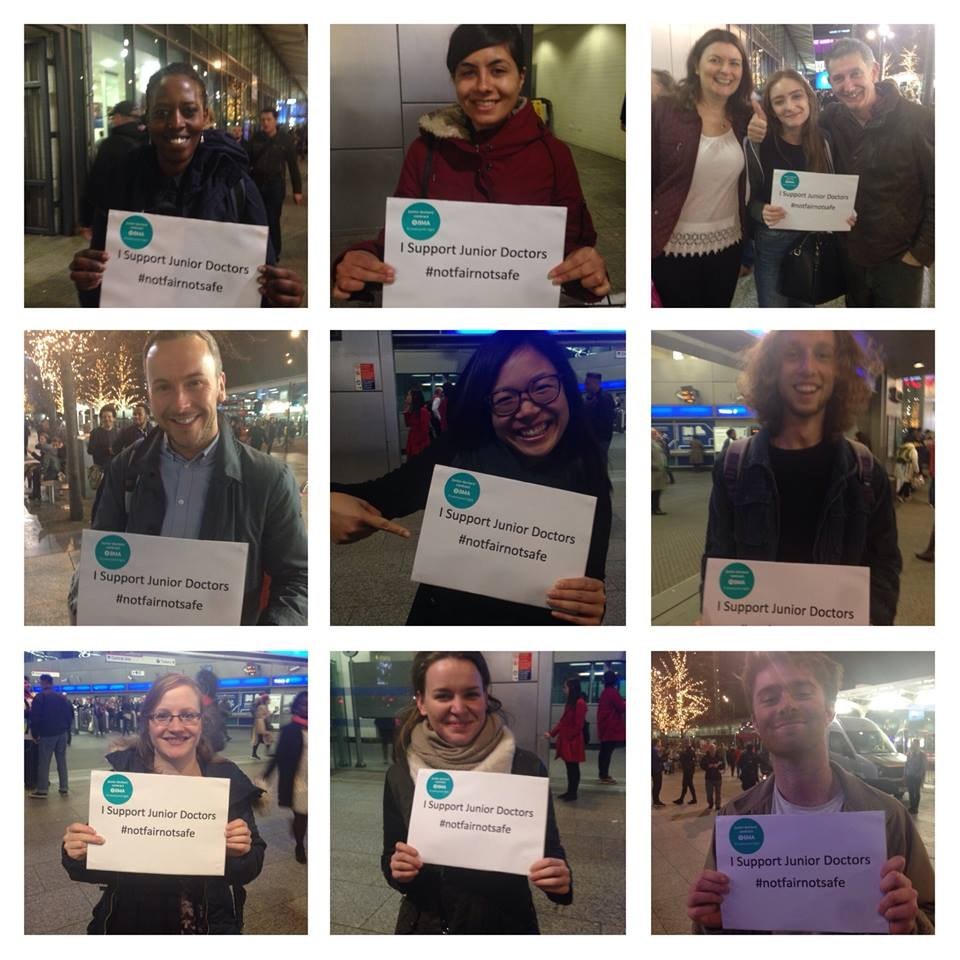Doctors have been met with public support at a series of events where they explained to people why they're considering striking over the proposed new junior doctors contract.
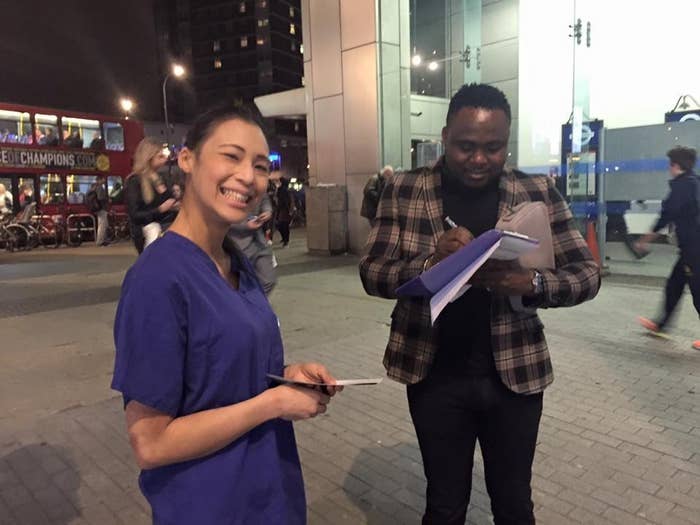
Over the last two weeks, campaigners have used the hashtag #MeetTheDoctors on social media to invite members of the public to events at places across the UK – including Chelmsford, Leeds, Birmingham, Worcester, Sheffield, and several locations in London – so they can explain why they think a new junior doctors contract, proposed by the government to come into effect next summer, is not safe and not fair for doctors or patients.
One of the campaign's organisers, Dr Amrita Jesurasa, told BuzzFeed News it was important for doctors to be able to tell people why "we are frustrated and outraged at the threat to impose the contracts on us, which are both unfair to doctors and unsafe for patients".
Very pleased to support #meetthedrs event in #Brighton - Govt should ensure #juniorcontract is fair & safe
The new contract would see "sociable working hours", for which junior doctors are paid a standard rate, change from 7am–7pm Monday–Friday to 7am–10pm Monday–Friday and 7am–7pm on Saturdays.
The proposed contract would also remove incremental pay rises, with increases instead based on moving through the stages of training and taking on more responsibility. Doctors have said the new contract also removes safeguards that mean hospitals can be penalised for overworking juniors.
While the health secretary, Jeremy Hunt, has offered junior doctors a basic pay increase of 11% to compensate for the alteration of "sociable working hours", doctors have said that in reality, they still expect to see their pay cut by around 30–40%.
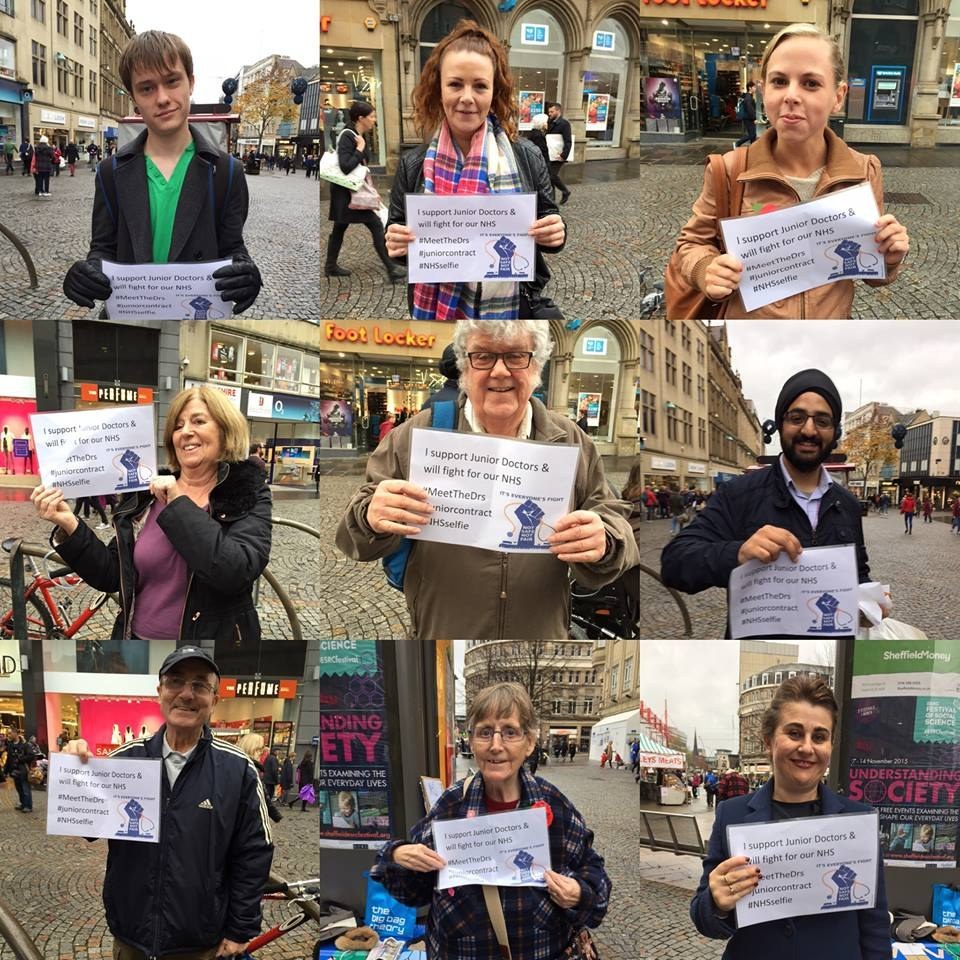
Following protests attended by around 20,000 doctors last month, Jesurasa told us there was concern that "we were not being made clear or being represented properly, so a few doctors took the opportunity to go out and talk to people themselves".

"As junior doctors we speak to the public day to day, so everyone was very keen to do this," Jesurasa said.
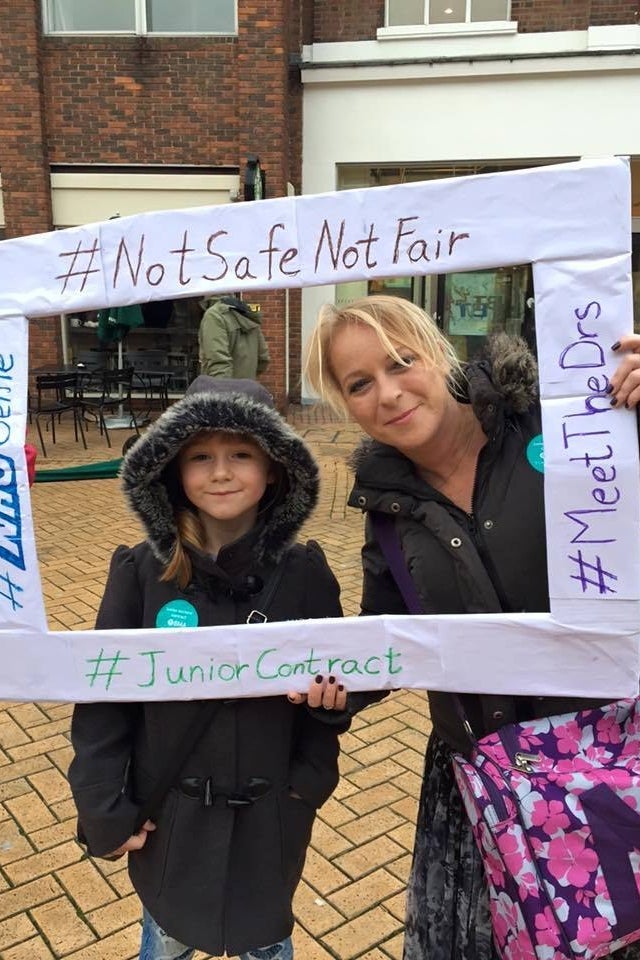
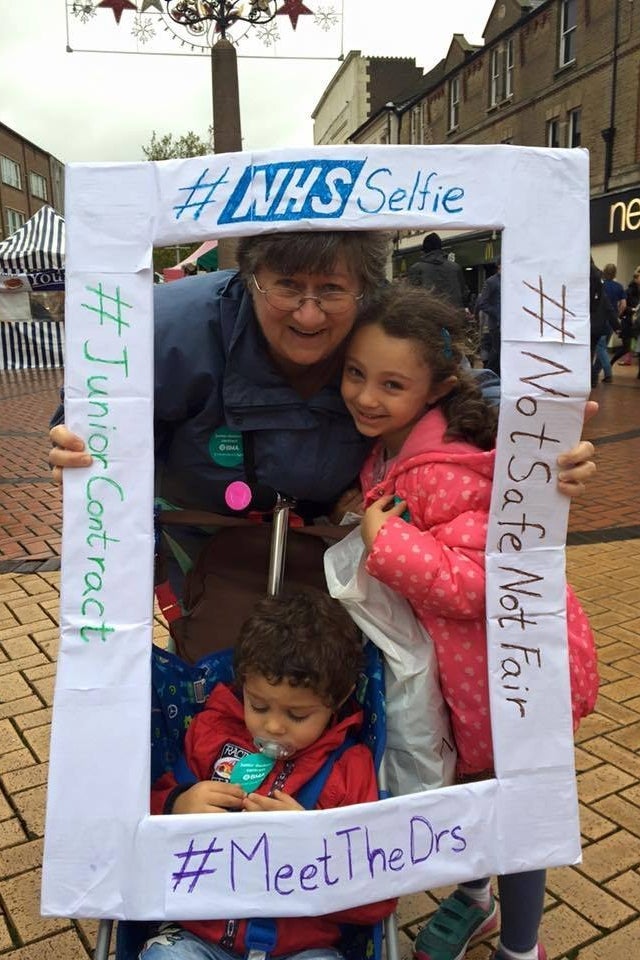
"We want people to know that negotiations had been going on for a long time, but the situation deteriorated when Hunt decided to impose the contract changes and to refuse to negotiate fairly with the BMA.
"We are explaining to people that the BMA is currently unable to negotiate with the government because of the many pre-conditions they would have to agree to in order to do that."
Jesurasa said the positive response to the meetings from the public has been "overwhelming" and "a morale boost and lovely to hear".
